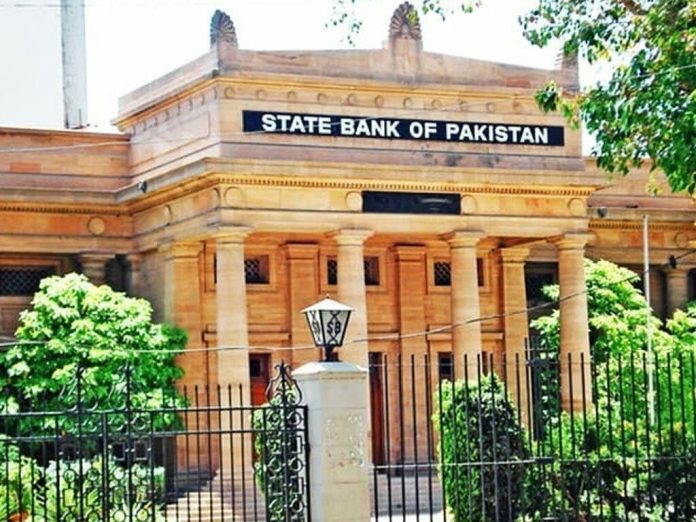—— Due to decline in inflation, SBP decided not to increase interest rate
—— Expects growth rate to remain between 2% to 3%
—— Central Bank Chief says more loans will be rolled over in coming months
By Ali Imran
ISLAMABAD: The State Bank of Pakistan (SBP) on Monday announced maintaining the key policy rate at 22% against market expectations as the analysts were expecting an increase in the interest rate on International Monetary Fund (IMF) guidelines.
The decision was announced by SBP Governor Jameel Ahmed following the Monetary Policy Committee (MPC) meeting.
“In view of the decline in inflation, the SBP decided not to increase the interest rate,” he added. Addressing a press conference, the central bank’s governor said the growth rate is expected to remain between 2% to 3% over the next year. He said the government has lifted all restrictions on imports and the country’s foreign exchange reserves increased by $4.2 billion in July after Pakistan received funds from the International Monetary Fund (IMF) and other friendly countries. The central bank chief said the foreign exchange reserves held by the SBP stood at $8.2 billion and they will improve further in December this year.
SBP Governor Ahmed said more loans will be rolled over in the coming months, adding that according to the MPC inflation is expected to come down. The SBP has raised its key policy rate by 12.25 percentage points since April 2022, mainly to curb soaring inflation.
The state bank held rates steady in June saying inflation had peaked at 38% in the preceding month. But before the end of the month, it raised rates by 100bps at an emergency meeting in an effort to secure IMF funds, citing a “slightly deteriorated inflation outlook”.
The IMF urged Pakistan in a staff report earlier in July to continue its monetary tightening cycle, a week after the lender approved the new $3 billion bailout arrangement with Pakistan which helped it avert a debt default.
In a statement issued following the meeting, the MPC noted that the economic uncertainty has decreased since the last meeting, whereas near-term external sector challenges have been largely addressed and investor confidence has shown improvement.
While some upside risks to the inflation outlook have emerged, the committee also took note of the expected lagged impact of the accumulated monetary tightening so far, budgeted fiscal consolidation, and the tepid growth outlook for FY24, it added.
The MPC particularly noted that year-on-year inflation is likely to remain on a downward path over the next 12 months, which implies a significant level of positive real interest rate.
Since the MPC meeting held on June 26, several important developments have influenced the short-term macroeconomic outlook.
First, Pakistan has secured a nine-month Stand-By Arrangement (SBA) with the Washington-based lender that has helped address immediate external sector stability concerns by supporting the foreign exchange reserves.
With the disbursement of the first tranche under the SBA and $3 billion in bilateral support, the SBP’s reserves increased from $4.5 billion at the end of June 2023 to $8.2 billion as of July 21, 2023.
Second, on top of the additional tax measures introduced at the time of approval of the budget, the government has notified an increase in electricity tariffs which would contribute to inflation in the coming months.
Third, global commodity prices have somewhat increased but are still lower than their recent peak. Moreover, the IMF in its July 2023 World Economic Outlook has slightly raised its projection of global growth this year while leaving the 2024 growth projection unchanged.
In light of these developments, the MPC stressed maintaining an appropriately tight monetary policy stance with positive real interest rates on a forward-looking basis to keep inflation and its expectation on downward path so as to achieve the medium-term inflation target of 5–7% by end-FY25.




